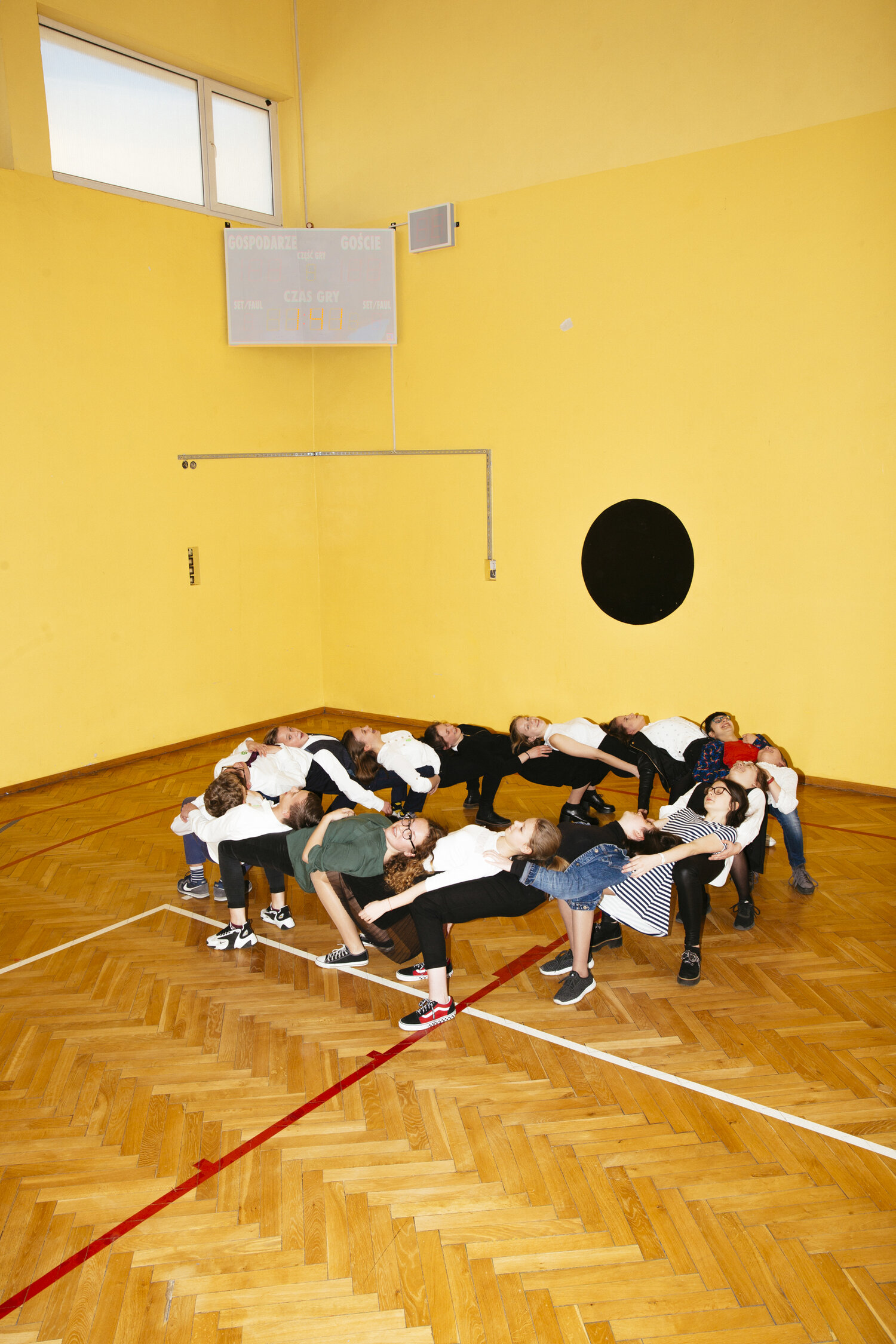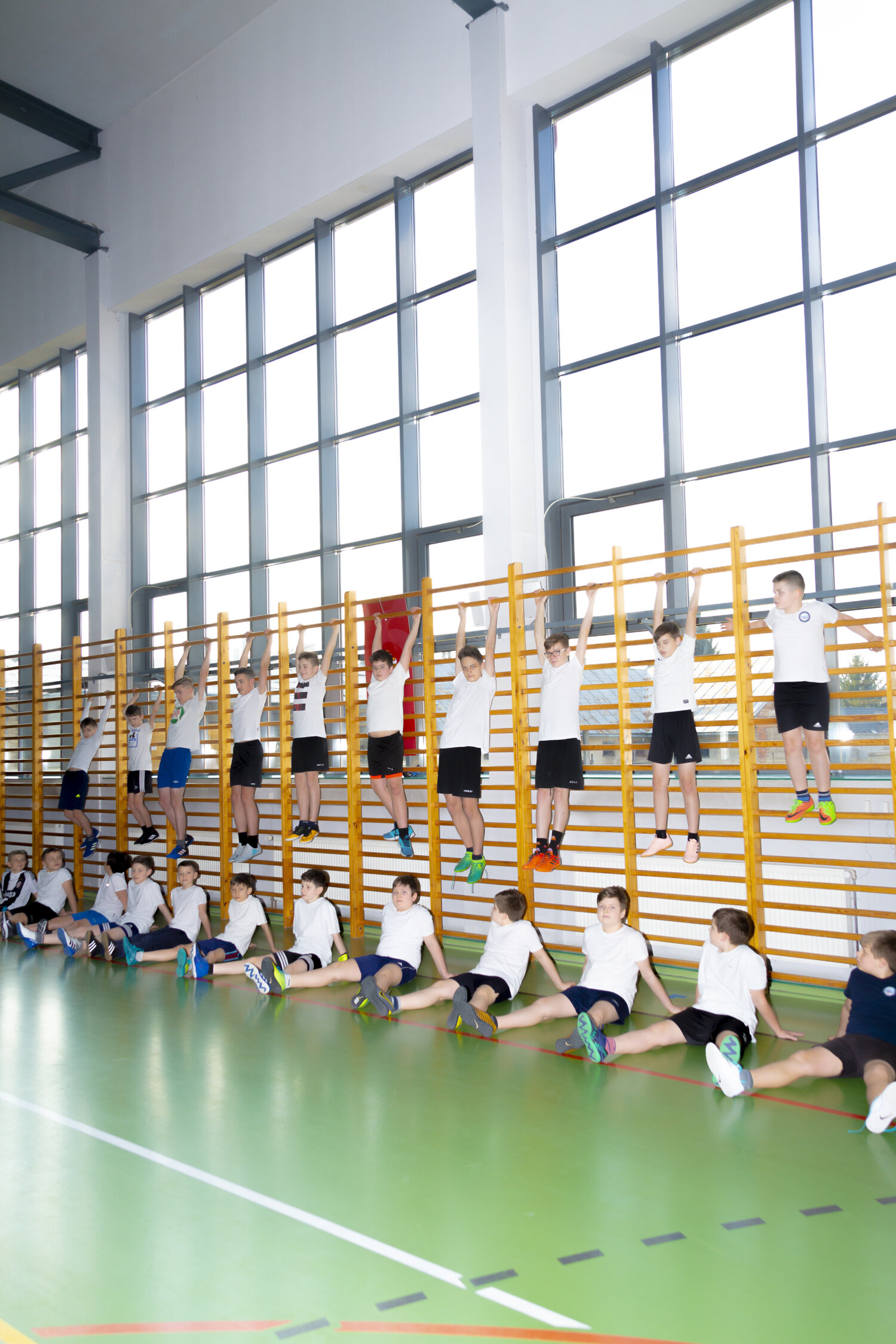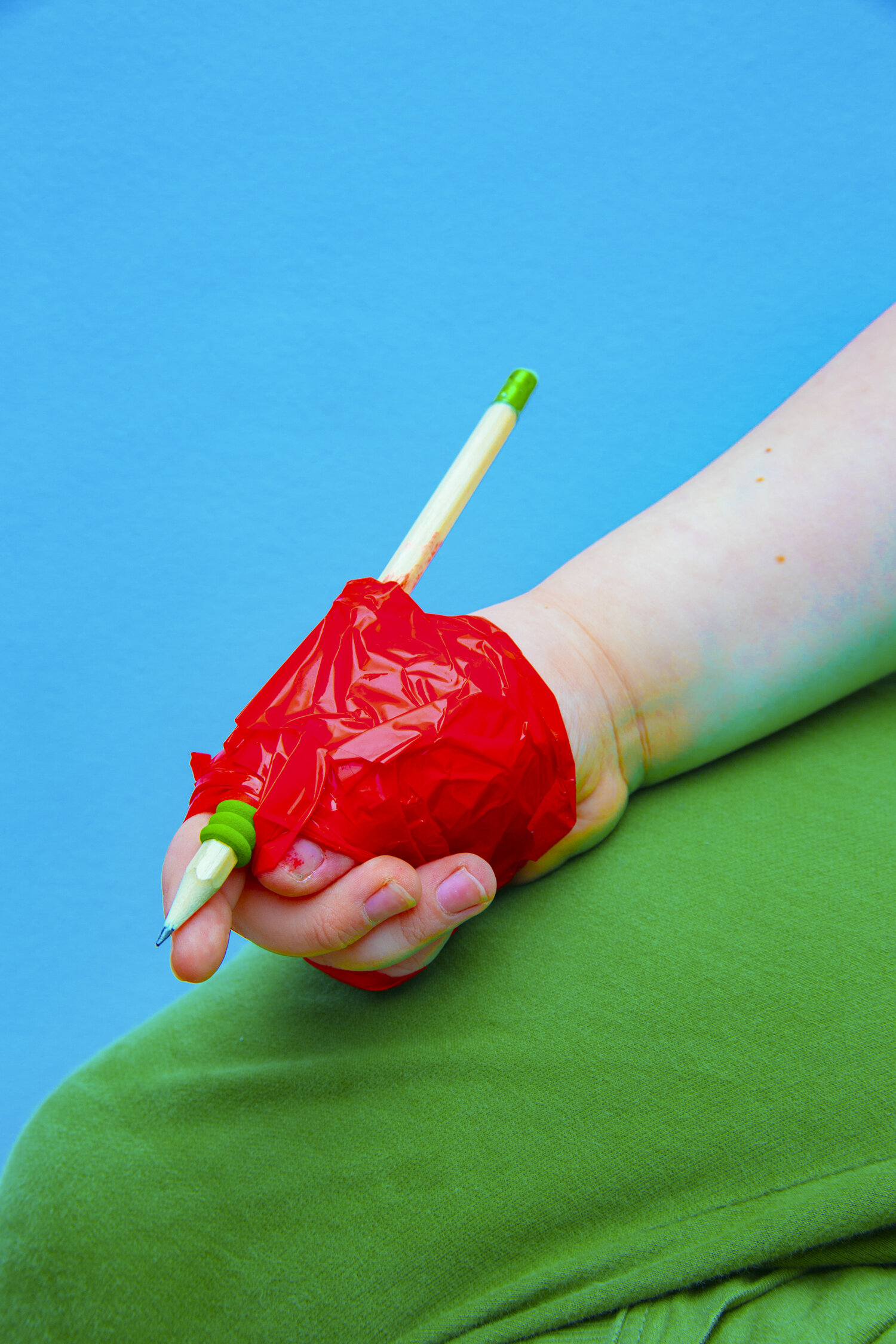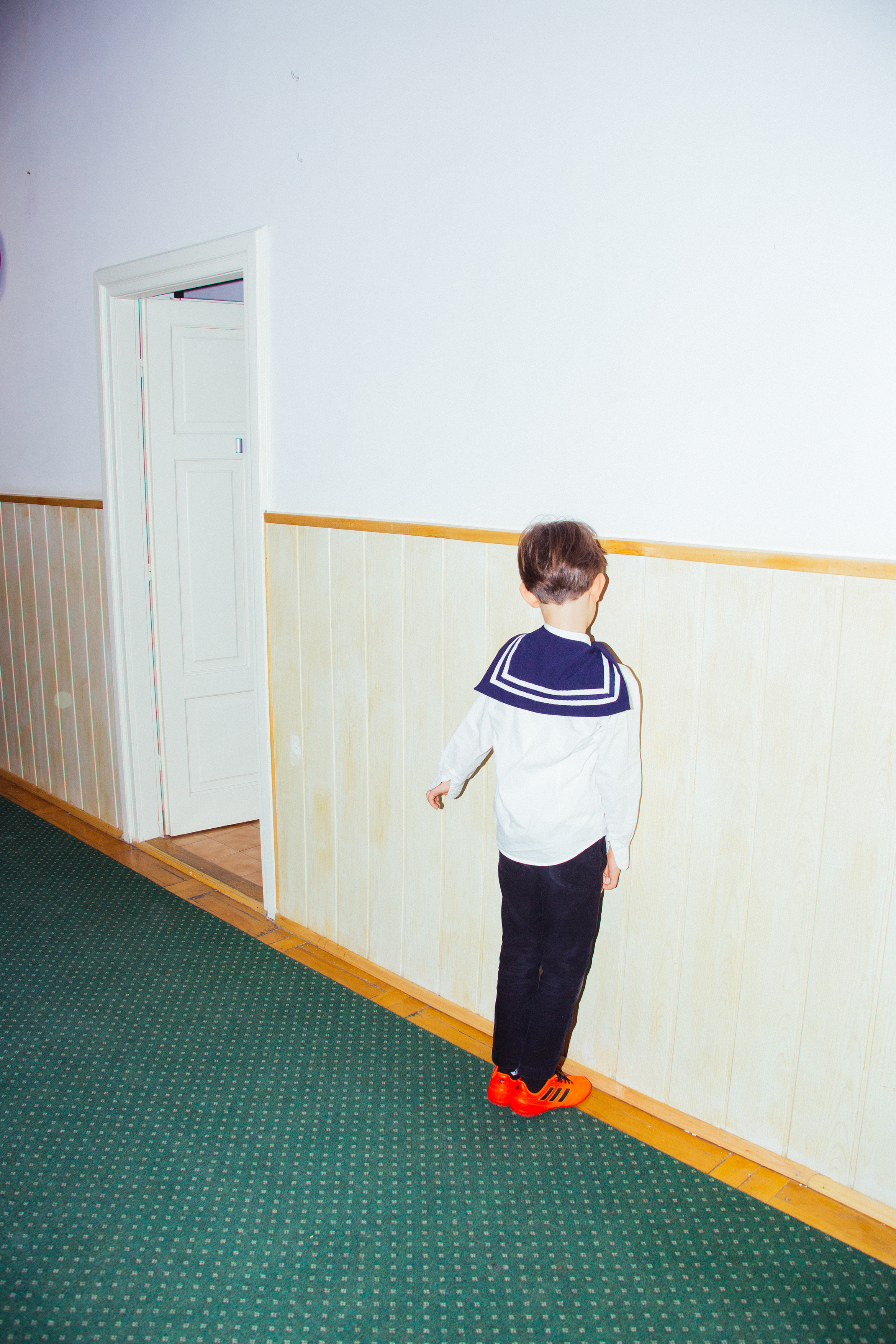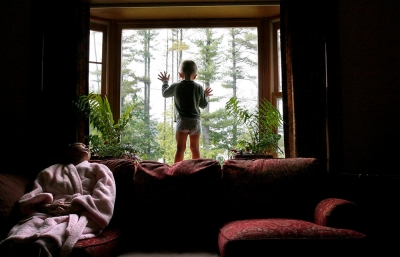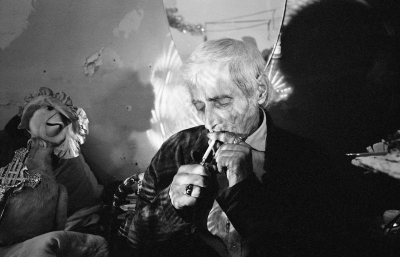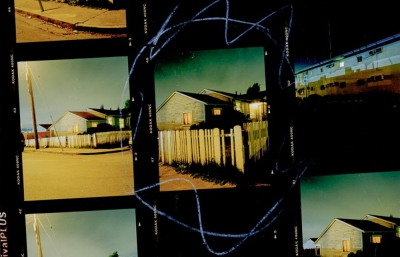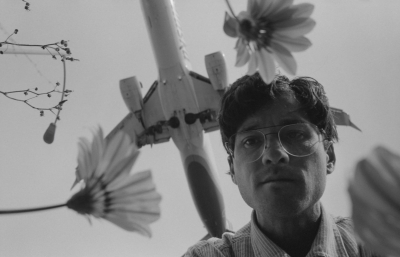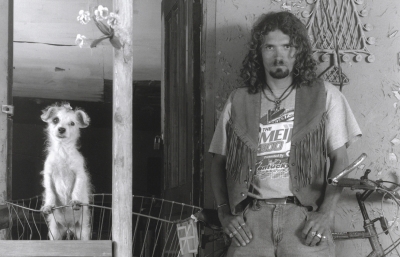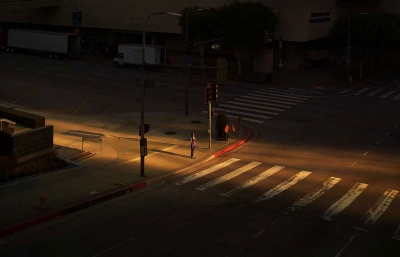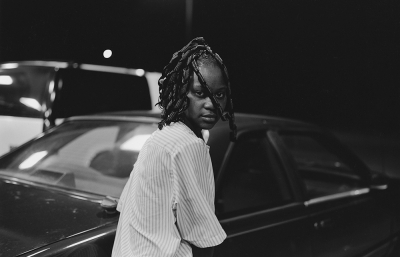A child stands in a hallway, with their face turned towards the white wall. Their navy-blue neckerchief evokes a school uniform. On the left is a wide-open door. Does it lead into a classroom? Are we seeing a child at play, turning around at any moment to look for hiding classmates, or are we observing a disciplinary situation? The picture is not unambiguous.
Polish media artist Karolina Wojtas never shies away from ambiguity. Even the meaning of the work’s title Abzgram raises questions. Is it an invented word, left open to interpretation and associations? Or is it the name of a game whose rules we do not know? Wojtas does not appear to heed rules and boundaries, at least not in her photographic practice. In her project, steadily developed since 2017, the emerging artist breaches every conceivable rule of photography through offbeat compositions, oversaturated colors, blur, and her aggressive use of flash. There is no sense of harmony.
The complex multimedia work comprises videos and a confusion of photographs, some found and others staged by Wojtas. She prints these photos onto various materials, which transform exhibition spaces into room-sized installations. Wojtas invites visitors to interact with the objects in space, in arrangements that resemble reenactments, and thus transport themselves back to the world of childhood. Thus, there are chairs that cannot be sat on, and elements such as the periodic table that have been taken—or rather, alienated—from a school context and mashed up with her photographic works in a surreal manner.
Wojtas’s exhibition design encloses the classroom in a bleak fence that intentionally evokes a penal institution. Upon passing through the fence door with the inscription Szkoła (Polish school), one hears instructions on how to behave according to the “Classroom Entry Procedure”: stand still, do not touch each other, keep your hands by your sides, look straight ahead.
The artist responds with caustic irony to the rigid Polish school system, which imposes rules on children with streaks of militarism. Wojtas finds a creative and sometimes biting form of criticism in particular with regard to the patriotic-nationalist tendency of current Polish politics. She counters the order, control, and discipline of everyday school life with a world of images and experiences based on kitsch, play, eccentricity, and nonsense. Does renouncing silence and discipline as a form of respect enable creativity and experimentation?
For more information, visit C|O Berlin.

